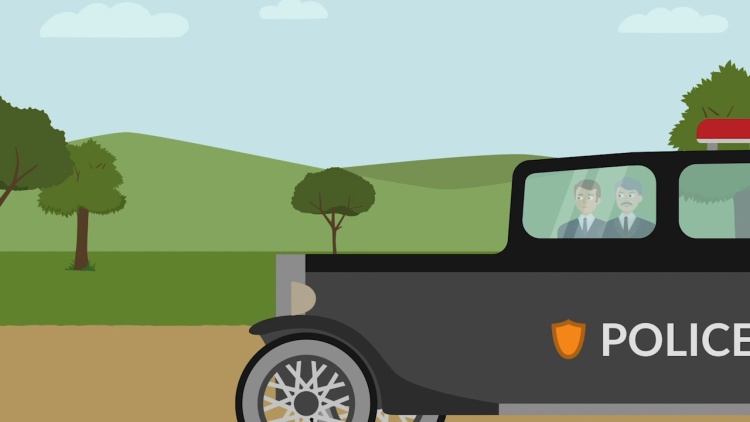Carroll v. United States
United States Supreme Court
267 U.S. 132 (1925)
- Written by Liz Nakamura, JD
Facts
In September 1921, undercover federal prohibition agents agreed to buy three cases of whisky from John Carroll and George Kiro (collectively, the Carrolls) (plaintiffs). The Carrolls left the negotiation in an Oldsmobile roadster, stating that they were going to get the whisky from Grand Rapids, Michigan. The Carrolls never returned. In 1921, the Eighteenth Amendment, which barred the sale and transport of alcohol in the United States, was still in effect. The highway from Detroit, Michigan, to Grand Rapids, Michigan, was a known artery for bootleggers, or people who illegally traded in alcohol, to bring alcohol into the United States from neighboring Canada. Two months later, the same undercover prohibition officers observed the Carrolls driving the same Oldsmobile roadster on the highway heading from Detroit toward Grand Rapids. The officers were not looking for the Carrolls at the time they observed them on the road. The officers pulled the Carrolls over and searched the car, finding liquor. The officers did not have a warrant to search the Carrolls’ car. The Carrolls were arrested and ultimately convicted. The Carrolls appealed the conviction, arguing that the prohibition officers did not have probable cause to search their car and, therefore, that the search violated the Fourth Amendment.
Rule of Law
Issue
Holding and Reasoning (Taft, C.J.)
Dissent (McReynolds, J.)
What to do next…
Here's why 907,000 law students have relied on our case briefs:
- Written by law professors and practitioners, not other law students. 47,100 briefs, keyed to 996 casebooks. Top-notch customer support.
- The right amount of information, includes the facts, issues, rule of law, holding and reasoning, and any concurrences and dissents.
- Access in your classes, works on your mobile and tablet. Massive library of related video lessons and high quality multiple-choice questions.
- Easy to use, uniform format for every case brief. Written in plain English, not in legalese. Our briefs summarize and simplify; they don’t just repeat the court’s language.





